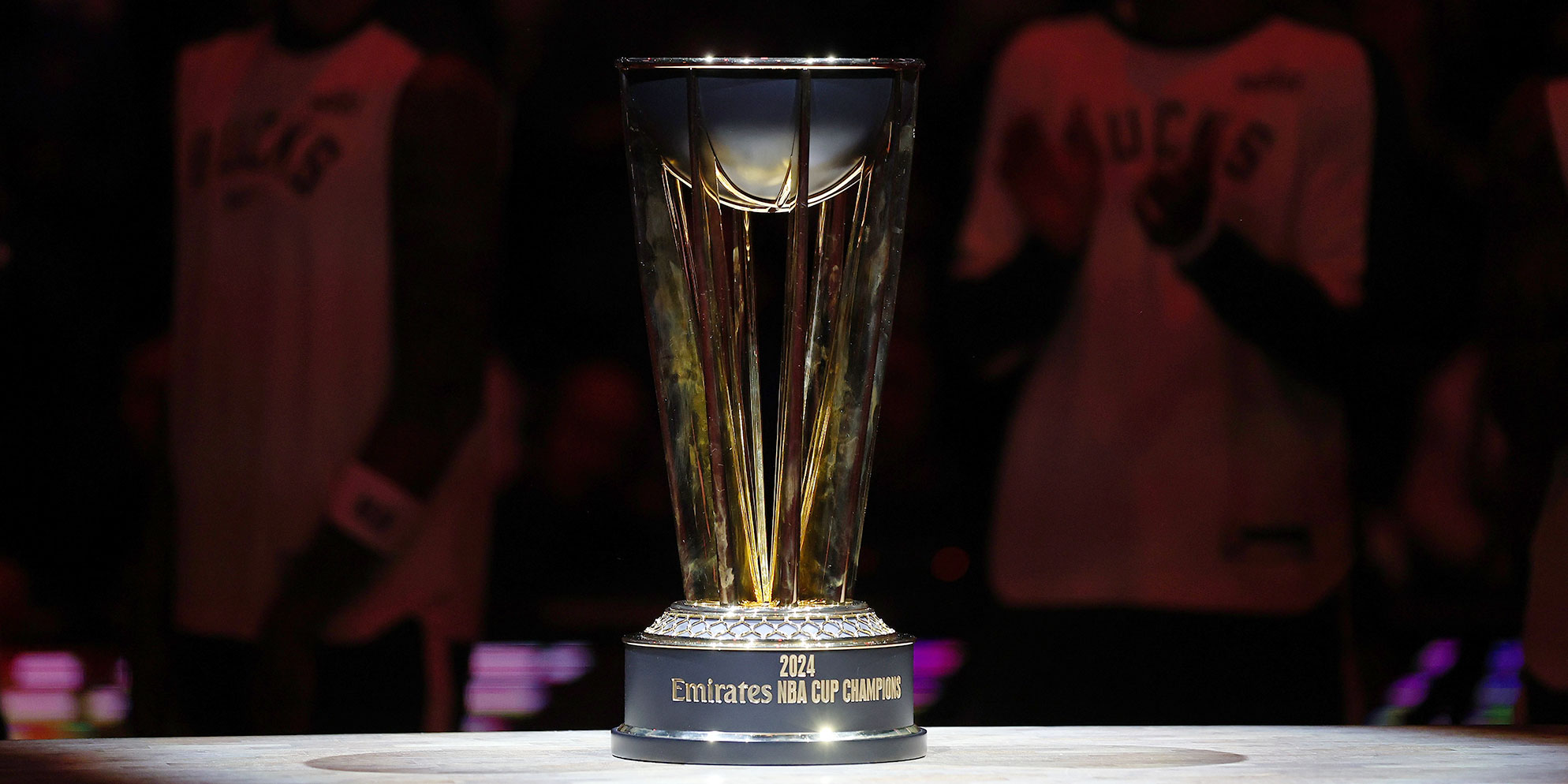The National Basketball Association (NBA) might just be the world champion in “sportswashing” the reputations of the most egregious regimes on the planet.
The NBA’s problematic relationships with China and Rwanda are well documented. But its growing alliance with the United Arab Emirates (UAE) could be the most troubling.
The NBA recently concluded an extravagant in-season tournament, the Emirates NBA Cup, which consisted of 67 games played over the course of five weeks. The tournament is named for its sponsor, the UAE-owned Emirates Airlines, which signed an enormous deal with the NBA earlier this year. When the Milwaukee Bucks won the tournament in Las Vegas on 17 December, each player on the team was awarded $500,000.
The same UAE that sponsored the lavish tournament has been accused by a United Nations Panel of Experts (among many others) with providing arms to a brutal militia, the Rapid Support Forces (RSF), which has been credibly accused of committing genocide in Darfur. (The Biden administration said on 19 December that the UAE, which has repeatedly denied any role in fuelling the carnage in Darfur, now claims that it will cease its support of the RSF.)
RSF’s brutal war
Few NBA players, executives or fans (more than 75% of the NBA’s social media followers are from outside of the US) are aware of the brutal campaign that the RSF is conducting in Darfur and other regions of Sudan with the material support of the UAE.
In a mid-2023 onslaught against El Geneina, the capital of West Darfur, the RSF committed “killings, torture and other forms of cruel, inhuman or degrading treatment or punishment, including rape and other forms of sexual violence, as well as looting, pillage and destruction of objects indispensable to the survival of the civilian population”, according to a UN fact-finding report. It has been estimated that between 10,000 and 15,000 people died during the RSF’s attacks on El Geneina during this period.
As I write, the RSF is laying siege to El Fasher, the capital of North Darfur, which has been under relentless attack for months. If El Fasher falls, the RSF will control all of Darfur. Hundreds of thousands of people who reside in the Zam Zam internally displaced persons camp to the south of El Fasher – many from the Fur, Zaghawa and Masalit ethnic groups targeted by the RSF – would be vulnerable to an RSF attack that would be frightful in its ferocity.
The impact of individual voices
It’s critical to recall how the NBA has played an historic role in the struggle for racial justice in America. Boston Celtics great Bill Russell was a pioneering civil rights activist who marched alongside Martin Luther King Jnr during the 1960s. Current players might find resonances between the suffering in Darfur and the kinds of American injustices that many of them care deeply about.
Anti-black hate speech and ethnic targeting is widely evident in the RSF’s genocidal campaign against Darfur’s darker-skinned communities. In a recent column, the New York Times columnist Nicholas Kristoff quoted a militia leader saying plainly: “We don’t want to see any black people, we don’t even want to see black trash bags.”
This is where individual voices can really make a difference.
Two decades ago, when Darfur was suffering through its previous wave of ethnic slaughter, a global activist coalition called out China, which at the time was by far the largest investor in Sudan. The coalition tied China’s lack of concern regarding the unfolding genocide in Darfur to Beijing’s hosting of the 2006 Olympics. Steven Spielberg, who had been hired to “direct” the opening and closing ceremonies, subsequently resigned over China’s connections to the genocide.
The global mobilisation Spielberg was part of – which included principled advocacy by celebrities such as George Clooney and Don Cheadle – had an impact. China joined successful international efforts that pressured Sudan to allow humanitarian aid into the Darfur displaced camps, which the Sudanese government had planned to starve.
Similarly, during the apartheid era in South Africa, musicians and athletes from all over the world decided not to take their talents to that country. That global effort helped contribute to awareness, leading to international pressure that undermined the country’s ability to do business and contributed to the eventual dismantling of an unjust system.
These examples show that one person’s stand – when part of a larger effort – can have an impact. Such movements usually start very small and rival David’s odds against Goliath, but they are proof that individual advocacy for human rights can play a role in real solutions.
When rapper Macklemore listened to Sudanese activists and cancelled his October 2024 concert in the UAE to protest against Emirati support for the atrocities in Darfur, he asked: “If we used our platforms to mobilise collective liberation, what could we accomplish?”
With their global platforms, NBA players and teams can create opportunities for change by drawing attention to the UAE’s support for the genocidal Sudanese militia, using this campaign to educate themselves.
Last year, the NBA generated 26 billion video views with a roster that featured 125 international players from 40 countries. Imagine the impact if the NBA, its teams and its players used their platforms and influence to shine a spotlight on Sudan’s long-suffering people. DM
John Prendergast is co-founder of The Sentry, an organisation that investigates predatory networks that benefit from violent conflict, repression, and kleptocracy.




